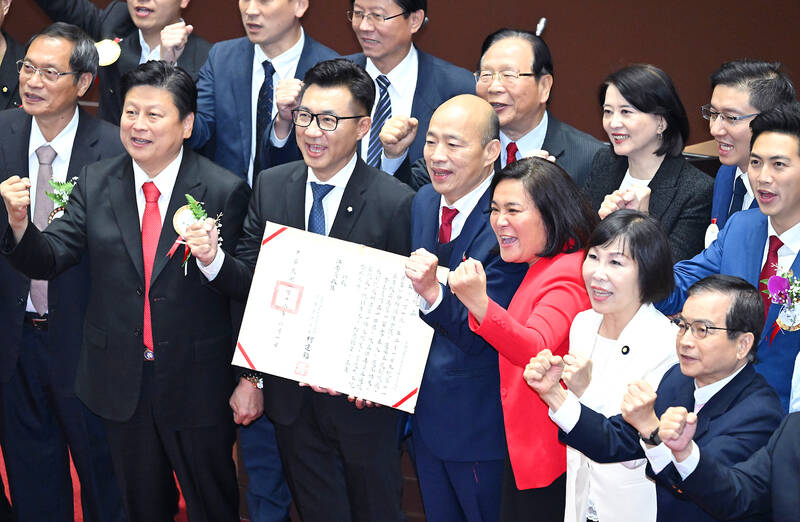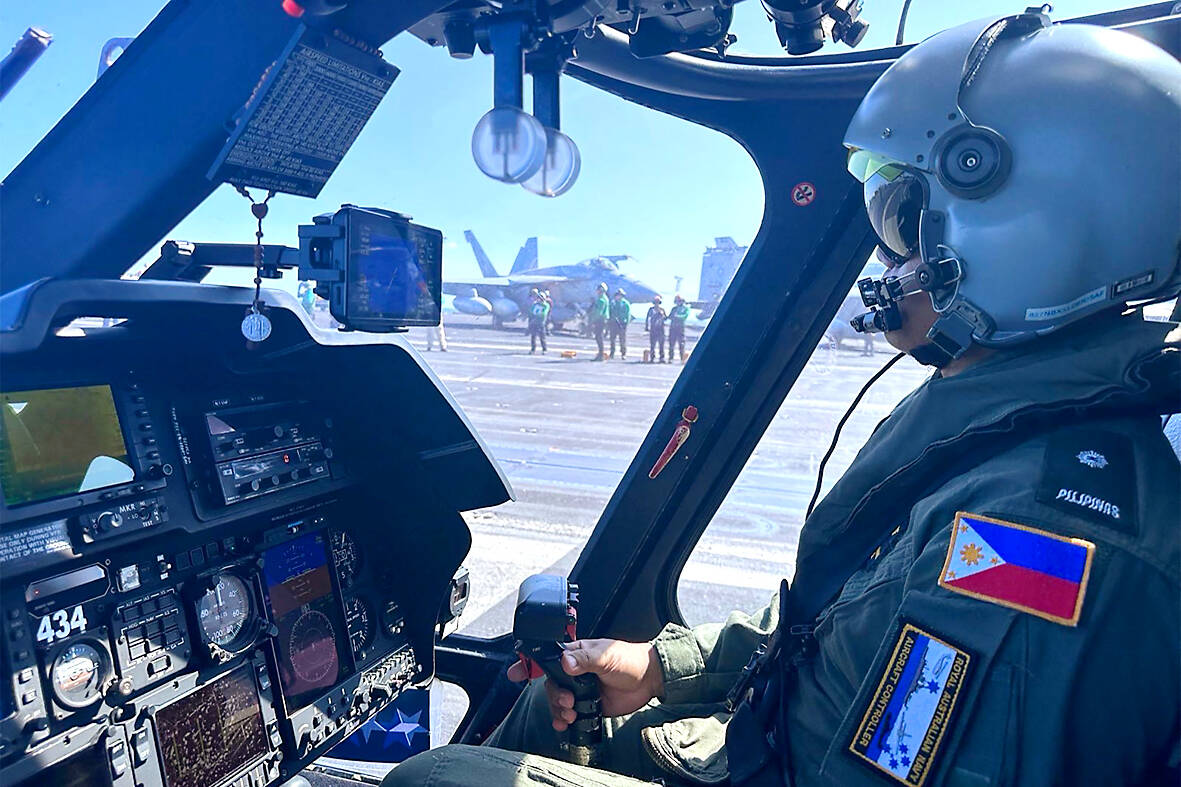Recently, in the Philippines, former president Rodrigo Duterte has been on the warpath against current President Bongbong Marcos. During his tenure Duterte was close to Beijing, while Marcos has returned the Philippines to its traditional alliance with the US.
Last week local newspapers reported that Duterte had called for a “separate, independent” Mindanao, referring to the island province in the south. The cleavage between the largely Tagalog speaking north and the largely Visaya speaking south is an old one in Philippine politics, but the leadership of Duterte, a southerner and Visaya speaker, suggests a new element has entered the fray: the People’s Republic of China (PRC).
Indeed, a prominent Filipino military blogger immediately began claiming that he had heard from sources in the Marcos administration that the PRC was urging Duterte and his family members to destabilize the administration and retake power. True or not, it is clear that a major push for independence for the region would be a gift to Beijing, another cleavage to exploit.

Photo: Liao Chen-huei, Taipei Times
Of late the Philippines has become the flashpoint everyone says Taiwan already is, with the ships of the Philippines, a formal treaty ally of the US, clashing regularly with PRC vessels. Beijing may not be planning a war, but that doesn’t mean it won’t trigger one.
PACIFIC GREAT GAME
Across the Asia-Pacific region Beijing is exploiting democratic structures to advance its influence by enlarging cleavages. As of this writing it was looking like Taiwan is about to lose Tuvalu after the recent election there. The PRC poached Nauru, timing the announcement for after the Jan. 13 elections, though the capture of Nauru was primarily aimed at Australia.

Photo: AFP
Mindanao is not the only region with potential to break away from its current sovereign. Bougainville, a group of two major islands with associated atolls and smaller islets, is currently struggling for independence from Papua New Guinea. The island’s export earner, one of the largest copper mines on earth, was closed in 1989 after locals shut it down due to its environmental and social effects. A few years ago Beijing offered to finance the new state, which otherwise would be destitute.
Similarly, in 2019 the Solomon Islands, neighbors to Bougainville, switched from Taiwan to the PRC, another move in the Great Game in the Pacific. Solomons sits astride Australia’s communications with the US and with East Asia, including its telecoms cables. The PRC and Solomons signed a security agreement in 2022 that gave Beijing the right to replenish its ships in local ports and to conduct aerial surveillance off the islands and of Australia. It also allows the Solomons to call on the PRC in case of local unrest, a role that had previously been given to Australia.
JUNKETS TO CHINA
PRC tactics are the same everywhere. Prior to the presidential election a number of local officials from Kaohsiung and Chiayi were indicted for taking trips to China organized and paid for by PRC officials. Just after the election the news broke of trips to China by city mayors from the US, part of PRC operations to court US local officials. In both cases the PRC was seeking local links it could use against the central government.
Taiwan offers numerous such cleavages for Beijing to exploit. The north-south split is well known, yet the PRC approach to local officials in the south shows how the south may be green at the national level, but at the local level, it remains a blue-green checkerboard.
Occasionally, one even hears proposals that Taipei could be split off from the rest of Taiwan as Northern Ireland is from Ireland. As a Taichung person, I consider it only humane to oppose this. The poor citizens of the Celestial Dragon Kingdom should not be required to own a passport just to enjoy decent weather.
CLASS AND GENERATIONAL CLEAVAGES
Taiwan is also afflicted with class and generational cleavages, brought into sharp focus by the election. For example, during the election it was reported that TikTok was rife with videos pushing Taiwan People’s Party (TPP) presidential candidate Ko Wen-je (柯文哲). Beijing probably preferred Ko to William Lai (賴清德), the Democratic Progressive Party (DPP) candidate (who would go on to win), but more importantly, it sought to generate cleavages in Taiwan’s society.
The TPP drew a large chunk of its support from young males who felt they weren’t making enough money. This cleavage will only grow as wealth continues to accrue to older asset holders and real estate investors. Interestingly, some recent research is showing a divergence between the politics of young males, who are becoming more right wing, and females, who are becoming more progressive, across several developed nations. I do not know of any research finding this in Taiwan, but the structure of support for Ko is suggestive of future trends. It could well grow into a major cleavage between the sexes as it currently is in South Korea. As I have observed before, Taiwan’s salaries and working hours are a critical national security issues.
Deployment of TikTok in the service of Beijing shows another cleavage, between savvy and ignorant Internet users. Line groups are rife with Beijing propaganda. Social media still puts users in silos. Conspiracy thinking abounds.
The reach and power of Beijing is so great that almost anywhere in society it can act effectively to widen divisions, making the maintenance of Taiwan’s still strong social cohesion an urgent national security issue. The military with its deep blue officer corps, businesses that do business across the strait and those who don’t. Big business and small. All these divisions are weak points.
LEGISLATIVE SPEAKER
Another cleavage was highlighted on Thursday when Han Kuo-yu (韓國瑜) of the Chinese Nationalist Party (KMT) won the election for legislative speaker: the divide between parties and politicians willing to work for Taiwan’s future, and those just cynically struggling to stay in power.
Congratulations, Ko voters. You got what you voted for and you can’t say you weren’t warned. Meanwhile the DPP apparently decided to let Han likely make the legislature useless rather than give the legislative presidency to the TPP and increase that party’s odds of survival.
Turnout in the last election was excellent and voters remain committed to democracy. But how long can that continue if voters repeatedly experience that greatest gulf of all: the abyss of disappointment between change desired and status quo delivered?
It will not be difficult for Beijing to exploit that cleavage.
Notes from Central Taiwan is a column written by long-term resident Michael Turton, who provides incisive commentary informed by three decades of living in and writing about his adoptive country. The views expressed here are his own.

On April 26, The Lancet published a letter from two doctors at Taichung-based China Medical University Hospital (CMUH) warning that “Taiwan’s Health Care System is on the Brink of Collapse.” The authors said that “Years of policy inaction and mismanagement of resources have led to the National Health Insurance system operating under unsustainable conditions.” The pushback was immediate. Errors in the paper were quickly identified and publicized, to discredit the authors (the hospital apologized). CNA reported that CMUH said the letter described Taiwan in 2021 as having 62 nurses per 10,000 people, when the correct number was 78 nurses per 10,000

As we live longer, our risk of cognitive impairment is increasing. How can we delay the onset of symptoms? Do we have to give up every indulgence or can small changes make a difference? We asked neurologists for tips on how to keep our brains healthy for life. TAKE CARE OF YOUR HEALTH “All of the sensible things that apply to bodily health apply to brain health,” says Suzanne O’Sullivan, a consultant in neurology at the National Hospital for Neurology and Neurosurgery in London, and the author of The Age of Diagnosis. “When you’re 20, you can get away with absolute

May 5 to May 11 What started out as friction between Taiwanese students at Taichung First High School and a Japanese head cook escalated dramatically over the first two weeks of May 1927. It began on April 30 when the cook’s wife knew that lotus starch used in that night’s dinner had rat feces in it, but failed to inform staff until the meal was already prepared. The students believed that her silence was intentional, and filed a complaint. The school’s Japanese administrators sided with the cook’s family, dismissing the students as troublemakers and clamping down on their freedoms — with

As Donald Trump’s executive order in March led to the shuttering of Voice of America (VOA) — the global broadcaster whose roots date back to the fight against Nazi propaganda — he quickly attracted support from figures not used to aligning themselves with any US administration. Trump had ordered the US Agency for Global Media, the federal agency that funds VOA and other groups promoting independent journalism overseas, to be “eliminated to the maximum extent consistent with applicable law.” The decision suddenly halted programming in 49 languages to more than 425 million people. In Moscow, Margarita Simonyan, the hardline editor-in-chief of the